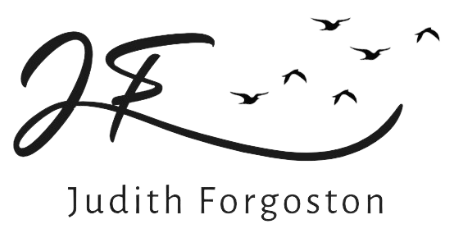I just returned from a spiritual retreat at Rocky Mountain National Park with author and pastor Brian Zahnd, his wife Peri, and almost one hundred participants from around the country. The setting was beautiful, the teachings fresh and inspiring, the conversations deep and moving. And yet what probably had the most lasting impact on me came from an unexpected source: The liturgy.
I was familiar with Brian’s morning liturgy, having attended several of his prayer schools and incorporated much of this liturgy into my own daily devotion. The liturgy consists of ancient prayers recited billions of times by Christians of all kinds of denominations all over the world, for nearly two thousand years. They are compilations of ancient texts expressing our hope, our faith, and our love toward God.
But during his mountain retreat, Brian added an evening liturgy as well. Parts of this second liturgy were unfamiliar to me, because they were taken from the Eastern Orthodox tradition. And while I was slightly uncomfortable at first (suspicion towards the unknown dies hard), after only a few days I felt these words have a most profound impact on me.
The core part of this particular liturgy was the word mercy. All over the text, the need for mercy was highlighted, repeated, stressed. And while this word is obviously familiar to Christians all over the world, its emphasis isn’t. The phrase Lord have mercy was in one place even repeated twelve times in a row:
Lord have mercy.
Lord have mercy.
Lord have mercy.
Lord have mercy.
Lord have mercy.
Lord have mercy.
Lord have mercy.
Lord have mercy.
Lord have mercy.
Lord have mercy.
Lord have mercy.
Lord have mercy.
At first reading, it felt uncomfortably like the mindless exercises ordered by my second-grade teacher: “Write: ‘I will not forget to hand in my homework again’ twenty times”.
But after a couple of days, the discomfort of seemingly mindless repetition gave way to an unexpected relaxation in me. At the end of the week, I was looking forward to exactly those words, as it dawned on me that asking God for mercy – for myself as well as for this whole world – was a more beautiful, more helpful, more honest prayer than most any of the ones I could come up with myself. A plea for mercy suggests I’m not in charge. It’s a confession that I need help daily. It’s the realization that, when looking deeply into my soul and heart, I am broken and vulnerable.
This is not what I’m used to singing, reading, or hearing in modern Christian life. We proclaim life, and victory, joy, wholeness and peace. And while all this is part of God’s promise for us, I believe it disregards the deepest realities of our human experience. It is our brokenness, not God’s victory over it, that makes us deeply human. Our vulnerability, not God’s strength, that connects us to other humans. And it’s our need for God’s mercy, not His justice, that enables us to extend mercy and compassion to the lost and broken neighbor around us.
I’m only beginning to explore this, fascinated among others by podcasts and articles of Dr. Brad Jersak, a Canadian professor who grew up Baptist but later in life became an active member of an orthodox community in Canada. According to him, one of the differences between the Eastern and Western churches is that many modern churches see Christianity as a courtroom in which Jesus saves us from the just penalty of our sins (and impending wrath of God). Eastern theology understands Christianity more as a hospital, where Jesus heals us from the mortal wounds of our selfishness, greed, cruelty and pride. It shouldn’t surprise us then that Orthodox theology places its focus on mercy, not justice, on love, not truth – understanding that the highest form or justice is mercy, and the highest form of truth is love.
At the end of the day my deepest, most life-changing encounters with God do not happen when I consider my righteousness in Christ, my victory over the devil or my joy as a child of God (all of which are important truths). Much more, they happen when I consider the mercy of God extended to my lost self in the darkness of my own making. When I consider the unconditional love poured over the broken, scared, vulnerable reality behind my strong and independent mask. And when I consider the pierced hands of a co-suffering Savior reaching down to be with me, to understand, to join me and the rest of mankind in our present suffering. It is in those moments that God truly becomes real to me, Christianity truly becomes beautiful, and following Jesus, in its purest form, becomes even possible.




Thank you for sharing your experience. My current church position will not allow me to participate in one of the prayer retreats. I will use the evening liturgy today. I was confused about the line, “understanding that the highest form or justice is mercy, and the highest form or truth is love.” Is the word, “or,” supposed to be, “of?” You may email me at revkellyanderson@yahoo.com.
Liebe Judith
Das ist harte Kost. Ich werde deine Worte noch länger überdenken müssen, sicher können wir an Weihnachten darüber reden.
Vielen Dank für die Post und liebe Grüsse
Mami
Ich freue mich darauf!
It’s a small world. My wife and I were at the retreat with you and David. We hiked with you to Mills Lake. I agree that the liturgy as a group was impactful, especially the mornings outside with God’s beautiful creation on display. Thanks for sharing your experience.
Hi Eric! It’s a small world indeed! I headed over to your blog and was touched by your posts – what you’re saying is so profound and impactful. Thank you for your work. Looking forward to connect more – maybe at another event with Brian and Peri!